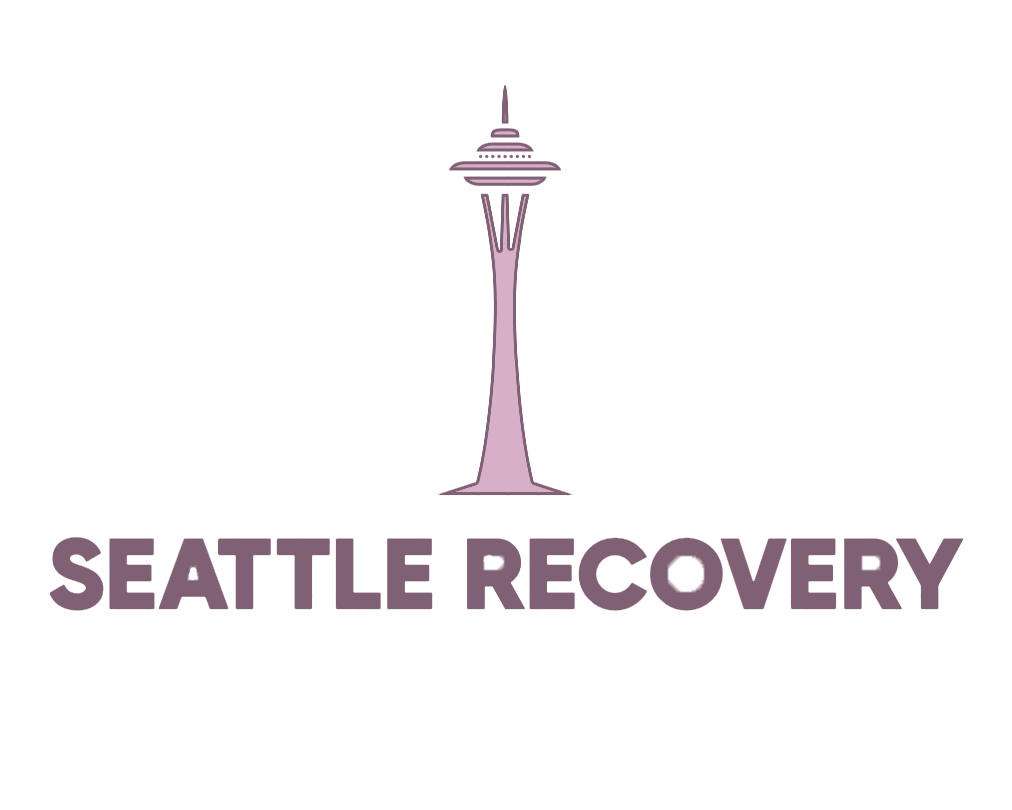When considering addiction treatment, one of the first decisions individuals face is whether to pursue inpatient or outpatient care. Both inpatient and outpatient programs offer effective treatment options for those struggling with substance use disorders, but they differ in terms of intensity, structure, and the level of care provided. For individuals seeking Washington rehabs, it’s crucial to understand the unique benefits and challenges of each approach to make an informed decision about which is the best fit for their recovery journey.
At Seattle Recovery, a comprehensive mental health and substance abuse treatment center in Washington, we are committed to helping individuals navigate their treatment options. Whether you’re considering inpatient or outpatient rehab, understanding the differences between the two is the key to finding a treatment plan that will set you up for long-term success. In this blog post, we will explore both inpatient and outpatient rehab options in Washington, comparing their benefits, challenges, and helping you choose the path that aligns with your recovery goals.
Understanding Inpatient Rehab: A Structured, Immersive Treatment Experience
Inpatient rehab, also known as residential treatment, is one of the most intensive forms of addiction treatment. During inpatient care, individuals live at a Washington rehab facility 24/7 for a set period of time, ranging from a few weeks to several months, depending on the severity of their addiction and their treatment plan.
Inpatient rehab is particularly effective for individuals with severe addiction, those who have relapsed multiple times, or those who have co-occurring mental health conditions. It offers a structured and immersive treatment experience that allows individuals to focus entirely on their recovery without the distractions and temptations of daily life.
Key Benefits of Inpatient Rehab in Washington:
- 24/7 supervision and care: One of the main advantages of inpatient treatment is the round-the-clock medical and psychological support provided. This is especially important for individuals going through alcohol or drug detox, as withdrawal symptoms can be intense and potentially life-threatening. Medical professionals at Washington rehabs ensure that individuals are closely monitored, and medications can be administered to help ease withdrawal symptoms.
- Immersive treatment experience: Inpatient programs offer a comprehensive, structured schedule that includes therapy, counseling, group support, and holistic treatments. This immersion in treatment helps individuals focus solely on recovery and fosters a deeper connection to the therapeutic process.
- Safe, distraction-free environment: Inpatient rehab removes individuals from the triggers, stressors, and temptations that may have contributed to their addiction. Living in a controlled environment helps individuals focus on healing, building healthy coping mechanisms, and developing the skills they need to maintain sobriety long-term.
- Access to a variety of therapies: Inpatient Washington rehabs often provide a wide range of treatment options, including individual therapy, group therapy, family therapy, cognitive-behavioral therapy (CBT), dialectical behavior therapy (DBT), and trauma-informed care. These therapeutic approaches help individuals address the underlying causes of their addiction and work through emotional or psychological challenges that may have contributed to their substance use.
- Peer support and community: Inpatient rehab fosters a sense of community among patients. Group therapy and shared living spaces offer a unique opportunity for individuals to connect with others in recovery. Many individuals find that sharing their experiences with others who have similar struggles creates a strong bond and provides the support necessary to stay sober.
Challenges of Inpatient Rehab:
- Time commitment: Inpatient rehab typically requires a more significant time investment, as individuals live in the treatment facility for an extended period. While this immersive approach can be highly beneficial for those with severe addiction, it may not be practical for everyone, especially individuals with family, work, or other commitments.
- Cost: Inpatient rehab is often more expensive than outpatient programs due to the level of care provided, including room and board, 24/7 medical supervision, and intensive therapy. However, many Washington rehabs offer payment options, insurance acceptance, and financial assistance to help make inpatient care more accessible.
- Separation from home and family: Inpatient rehab requires individuals to temporarily leave their homes, which can be emotionally challenging, especially for those with family or job responsibilities. Some individuals may struggle with being away from their support system, but this is often outweighed by the benefits of an immersive treatment experience.
Understanding Outpatient Washington Rehabs: Flexibility and Independence in Treatment
Outpatient rehab offers a less intensive form of treatment, where individuals attend therapy and counseling sessions at Washington rehabs but do not stay overnight. Outpatient programs typically involve a few hours of treatment each day, several days a week, allowing individuals to continue living at home and maintaining their daily routines.
Outpatient rehab is often suitable for individuals with milder substance use disorders or those who have already completed inpatient care and are transitioning back to regular life. It provides more flexibility compared to inpatient treatment, making it an appealing option for those who cannot commit to a residential program due to work, family, or other personal responsibilities.
Key Benefits of Outpatient Washington Rehabs:
- Flexibility: One of the most significant advantages of outpatient rehab is its flexibility. Individuals can continue working, attending school, or caring for their families while receiving treatment. This allows them to maintain a sense of normalcy during their recovery process.
- Lower cost: Outpatient programs are generally more affordable than inpatient care because they do not include room and board. For individuals without extensive insurance coverage or those looking for a more budget-friendly option, outpatient Washington rehabs can be a practical solution.
- Reduced disruption to daily life: Outpatient rehab allows individuals to maintain their responsibilities, including work, school, or family obligations, while receiving treatment. This can help individuals transition into recovery without the emotional or practical challenges of being separated from their home life.
- Continued support: While outpatient rehab doesn’t provide the same level of 24/7 care as inpatient programs, it still offers ongoing therapy, counseling, and support group sessions. This ongoing treatment helps individuals continue to build on the work they’ve done in inpatient care and stay on track with their recovery goals.
- Community connection: Like inpatient treatment, outpatient programs also offer group therapy and peer support. Patients are able to connect with others in recovery and share their experiences, struggles, and successes. This sense of community can be a valuable source of support and encouragement during the recovery process.
Challenges of Outpatient Rehab:
- Higher risk of relapse: Since outpatient rehab doesn’t provide the constant supervision and structured environment of inpatient care, individuals may be exposed to triggers or stressors that could lead to relapse. For those in early recovery, or those with a severe addiction, outpatient rehab may not provide the necessary level of protection against these risks.
- Less intensive care: While outpatient programs offer therapy and counseling, they are typically less intensive than inpatient rehab. Individuals may miss out on the more immersive, daily therapeutic experiences that are available in residential care.
- Self-discipline required: Outpatient rehab requires a significant degree of personal responsibility and self-discipline. Since individuals return home after each session, they need to stay committed to their recovery outside of scheduled treatment hours. This can be challenging for those who have difficulty maintaining structure in their lives or who are in environments that enable their substance use.
How to Choose Between Inpatient and Outpatient Rehabs
Choosing between inpatient and outpatient treatment depends on a variety of factors, including the severity of the addiction, the individual’s personal circumstances, and their long-term recovery goals. Below are some key considerations to help guide your decision-making process:
- Severity of addiction: Inpatient rehab is often the best option for those with severe addiction, those who require detox, or those who have experienced multiple relapses. If someone is struggling with a more moderate addiction and has strong motivation to recover, outpatient rehab can be a good fit.
- Co-occurring mental health issues: Individuals with dual diagnoses (addiction and mental health disorders, such as depression or anxiety) may benefit from inpatient rehab, where they can receive integrated care. If someone is managing a mental health condition but has less severe addiction symptoms, outpatient Washington rehabs can offer the necessary support while allowing for continued treatment for mental health.
- Support system: Outpatient rehab is a great option for individuals with a strong support system at home. If a person has family or friends who can provide emotional and practical support, outpatient treatment may be sufficient. However, if an individual lacks a solid support system, inpatient rehab offers a more structured, supportive environment to help them through the initial stages of recovery.
- Commitment and motivation: Inpatient rehab is often more effective for individuals who need an immersive, structured treatment experience. It offers a high level of accountability, making it ideal for those who have difficulty staying committed to their recovery. Outpatient rehab requires a high level of self-discipline and motivation, as individuals are responsible for maintaining their treatment schedule and avoiding triggers outside of the treatment setting.
- Practical considerations: Cost, work or family responsibilities, and other logistical factors will also influence your choice. Inpatient rehab requires a greater time commitment and can be more expensive, while outpatient rehab offers greater flexibility and affordability.
About Seattle Recovery
At Seattle Recovery, we are dedicated to providing comprehensive and compassionate care for individuals struggling with mental health, substance abuse, and process addictions. Our team of experienced and highly trained professionals understand the complexities of addiction and the importance of addressing underlying issues to achieve lasting recovery. We offer a range of evidence-based treatment options tailored to each individual’s unique needs and goals.
Our approach to treating mental health, substances abuse, and process addictions is holistic in nature, meaning we focus on healing the mind, body, and spirit. We believe that true recovery involves addressing all aspects of a person’s well-being. This includes therapy to address past traumas or underlying mental health conditions that may contribute to addictive behaviors, as well as implementing healthy coping mechanisms and lifestyle changes to support ongoing sobriety.
We also recognize that every person’s journey to recovery is unique, which is why we offer a variety of treatment modalities including individual therapy, group therapy, family counseling, and more. Our goal is to provide a safe and supportive environment for our clients to explore their personal challenges and develop the skills and tools necessary for lasting change.
At Seattle Recovery, we are committed to helping individuals achieve long-term recovery by providing them with the resources they need both during and after treatment. We believe in treating the whole person, not just the symptoms of addiction or mental health issues. If you or a loved one is struggling with these challenges, please contact us to learn more about our programs and how we can help. Recovery is possible, and we are here to support you every step of the way. So reach out today and take the first step towards a healthier, happier life.
The Role of Seattle Recovery in Your Treatment Decision
At Seattle Recovery, we understand that mental health issues, substance abuse, and process addictions can have a profound impact on individuals and their families. That’s why our team is committed to providing personalized care that addresses underlying issues and helps clients achieve lasting recovery.
We offer a range of evidence-based treatment options, including inpatient and outpatient rehab, as well as ongoing support for individuals who have completed their initial program. Our goal is to empower our clients with the tools and resources they need to overcome addiction and improve their overall quality of life.
If you are struggling with mental health issues or addiction, we encourage you to reach out and start your journey towards healing today. Our team at Seattle Recovery is here to support you every step of the way, providing a safe and compassionate environment for your recovery. No matter where you are on your path, there is hope for a better tomorrow. Contact us now to learn more about our programs and how we can help you take back control of your life. Give us a call at (206) 231-0252 or visit our website at www.seattlerecovery.org to get the help you or a loved one may need.








